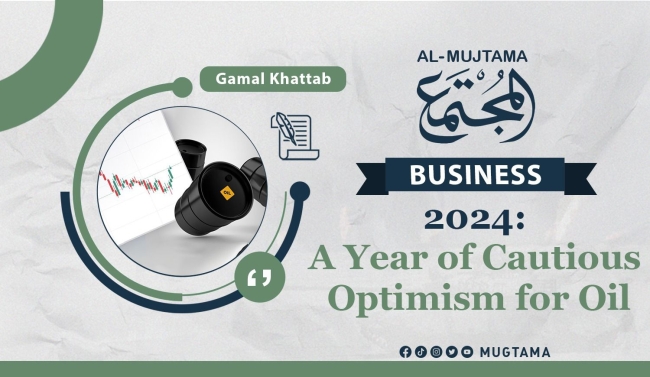- Global economic growth expected to slow oil consumption growth.
- IEA predicts oil demand to rise by 1.1 million barrels per day in 2024.
- China, the world's largest oil importer, is projected to boost oil demand by 700,000 mbpd.
- OPEC+ holds the supply side, but potential Iranian oil return puts pressure on strategic production management.
- Excessive production hikes could trigger price collapses.
- Uncertainty lingers due to Middle East geopolitical tensions, renewable energy adoption pace, and future carbon pricing policies.
- Leading economists emphasize the need for "cautious optimism" in the precarious economic climate.
Demand on a Razor's Edge:
2024 is starting with a lot of uncertainty in the oil market. Last year was pretty crazy with prices going up and down and people worrying about what's happening in different parts of the world. This year, we're cautiously optimistic, but we're also worried about the global economy.
Delicate Dance
On the demand side, a delicate dance awaits. Global economic growth is predicted to remain sluggish, hovering around 2.9% according to the World Bank. This subdued pace, a consequence of lingering inflation and interest rate hikes, translates to slower oil consumption growth. The International Energy Agency (IEA) expects oil demand to rise by 1.1 million barrels per day (mbpd) in 2024, a slower rate than the past year. Yet, within this deceleration, glimmers of hope emerge. China, the world's largest oil importer, is projected to witness a modest economic rebound, boosting its oil demand by 700,000 mbpd. This potential upswing, however, hinges on successful government stimulus measures and a controlled property market recovery.
Supply: A Delicate Balancing Act
On the supply side, OPEC+, the powerful oil cartel, holds the reins. With the potential return of Iranian oil to the market amidst thawing US-Iran relations, the pressure mounts on OPEC+ to manage production levels strategically. Fatih Birol, IEA Executive Director, asserts, "OPEC+ will need to tread a narrow path, balancing the needs of both producers and consumers, particularly in a fragile economic environment." Should OPEC+ maintain production cuts, prices could rise towards $100 per barrel, as predicted by Goldman Sachs. However, excessive production hikes could trigger price collapses, detrimental to both producers and consumers.
Uncertainty Lingers
Beyond these core drivers, a web of uncertainties lurks. Geopolitical tensions in the Middle East, particularly the simmering Iran-Israel conflict, could disrupt supply chains and send shockwaves through prices. Additionally, the pace of renewable energy adoption and the future of carbon pricing policies remain wild cards, capable of impacting long-term demand trajectories.
Leading Economists Weigh In
Economists offer diverse perspectives on this intricate scenario. "The oil market in 2024 will be a game of chicken," quips Jeffrey Currie, Head of Commodity Research at Goldman Sachs, highlighting the delicate balancing act between OPEC+ and the global economy. Similarly, Carlos Torres Vila, CEO of BBVA, emphasizes the need for "cautious optimism," warning against "excessive exuberance" in light of the precarious economic climate.
2024: A Year of Navigation, Not Celebration:
In conclusion, 2024 presents a year of cautious optimism for the oil market, intricately woven with threads of economic instability and geopolitical uncertainties. While glimmers of demand growth, particularly from China, offer hope, the delicate balancing act of OPEC+ production cuts and potential Iranian oil re-entry poses significant challenges. Leading economists rightly counsel prudence, urging against unbridled optimism in the face of persistent global economic headwinds. Ultimately, 2024 will be a year for nimble navigation, not boisterous celebration, in the turbulent waters of the oil market.
------------------------
Sources:
- International Energy Agency (IEA): https://www.iea.org/
- World Bank: https://www.worldbank.org/
- Goldman Sachs: https://www.goldmansachs.com/
- BBVA: https://www.bbva.com/


